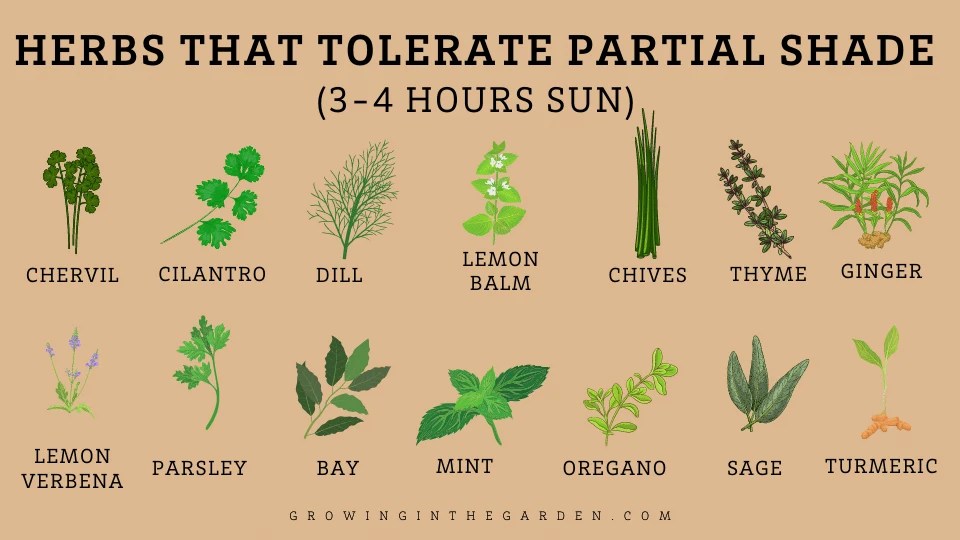Vegetables That Grow In Full Shade
Gardening enthusiasts often face challenges when dealing with limited sunlight. Many popular vegetables require at least six hours of direct sunlight to thrive. However, a surprising number of vegetables can flourish in full shade, defined as areas receiving less than three hours of direct sunlight per day, or dappled sunlight throughout the day. Choosing the right varieties is essential for successful shade gardening. This article explores vegetables that tolerate and even prefer full shade, providing guidance for maximizing yields in these less sunny areas.
Understanding the nuances of shade is crucial. "Full shade" doesn't necessarily mean complete darkness. Some vegetables can tolerate deep shade, while others need a bit of filtered light to perform well. Examining the specific light conditions in the garden is the first step in planning a successful shade garden. Soil preparation, watering practices, and pest control are also vital components in managing a thriving vegetable garden, even in limited sunlight.
Leafy Greens for Shady Gardens
Leafy greens are generally well-suited for growing in full shade. Their primary function is to produce leaves, and direct sunlight isn't as crucial as it is for fruiting vegetables. Several varieties perform exceptionally well in shady conditions.
Lettuce is a prime example. Loose-leaf varieties like 'Black Seeded Simpson' and 'Oak Leaf' are particularly shade-tolerant. They can be harvested continuously as needed, providing a steady supply of fresh greens. Head lettuce varieties may also grow in shade, but they tend to be smaller and slower to mature compared to those grown in full sun.
Spinach thrives in cool, shady conditions. It bolts (goes to seed) quickly in hot weather, making shade a valuable asset for extending the harvest season. Regular watering and fertile soil are essential for optimal spinach growth. Mulching around the plants helps retain moisture and suppress weeds.
Kale is another resilient leafy green that tolerates shade. While it grows best in partial shade, it still produces a decent crop in full shade, especially if given adequate moisture and nutrients. Varieties like 'Lacinato' (dinosaur kale) and 'Red Russian' are known for their cold hardiness and ability to withstand low-light conditions.
Arugula, with its peppery bite, also thrives under shade. The shade prevents the leaves from becoming too bitter, a common problem when grown in full sun. Similar to spinach, arugula is susceptible to bolting in hot weather, so shade is a significant advantage.
Other leafy greens that can tolerate full shade include mustard greens, Swiss chard, and collard greens. Experimenting with different varieties to find what grows best in the specific microclimate of the garden is recommended.
Root Vegetables That Tolerate Shade
While root vegetables generally prefer more sun than leafy greens, some varieties can still produce a usable crop in full shade. The key is to choose varieties that mature quickly and provide them with well-drained, nutrient-rich soil.
Radishes are an excellent choice for shade gardens. They mature rapidly, often within a month, making them a rewarding crop even in less-than-ideal conditions. Varieties like 'Cherry Belle' and 'French Breakfast' are popular options. Regular watering is essential to prevent the radishes from becoming woody or cracked.
Beets can also be grown in full shade, although the roots may not be as large as those grown in full sun. The beet greens are also edible and can be harvested throughout the growing season. Varieties like 'Detroit Dark Red' and 'Early Wonder' are suitable for shade gardening.
Carrots may be more challenging to grow in full shade, but short, round varieties like 'Thumbelina' or 'Parisian' can still produce a decent crop. Loose, well-drained soil is crucial for proper root development. Thinning the seedlings is also important to prevent overcrowding.
Turnips, like radishes, are relatively fast-growing and can tolerate shade. Both the roots and the greens are edible. Varieties like 'Purple Top White Globe' are commonly grown. Mulching helps retain moisture and keeps the soil cool.
It is crucial to note that while root vegetables can tolerate shade, they still require adequate nutrients. Amending the soil with compost or other organic matter before planting is highly recommended.
Other Vegetables for Shaded Areas
Beyond leafy greens and root vegetables, some other vegetables can surprisingly thrive in full shade. These options broaden the possibilities for creating a diverse shade garden.
Broccoli and cauliflower, while generally considered sun-loving, can tolerate partial to full shade, especially if planted early in the spring or late in the summer. The heads may not be as large as those grown in full sun, but they can still provide a satisfying harvest. Choose early-maturing varieties to maximize yields.
Peas are another option for shade gardens. They prefer cool weather and can benefit from the protection of shade during the hottest part of the day. Bush varieties are generally easier to manage in shade than vining varieties, as they require less support. Snow peas and snap peas are also viable options.
Certain herbs also thrive in shade. Mint, parsley, and chives are particularly well-suited for shady conditions. These herbs not only provide fresh flavor for cooking but also attract beneficial insects to the garden.
Even though they are technically fruits, certain varieties of strawberries can tolerate some shade, however they do benefit from some partial sun during the day. Alpine strawberries, in particular, are known for their ability to grow in less-than-ideal conditions.
Growing vegetables in full shade requires careful planning and management. Selecting the right varieties, preparing the soil appropriately, and providing adequate moisture and nutrients are essential for success. Regular monitoring for pests and diseases is also crucial. By following these guidelines, gardeners can enjoy a productive and rewarding vegetable garden even in the shadiest of locations.
Remember to continuously assess the light levels in the garden throughout the growing season, as sunlight patterns can change due to tree growth or seasonal shifts. Adapt the planting strategy accordingly to optimize yields and create a thriving shade garden.

Shade Tolerant Vegetables Portland Monthly

Shade Tolerant Vegetables To Grow Mr Fothergill S Latest Help Advice

30 Vegetables That Grow In Shade

Vegetables Herbs Flowers That Grow In Shade 5 Tips For Gardening Growing The Garden

20 Shade Tolerant Plants To Grow In Your Garden This Summer Live Love Fruit

Vegetables Herbs Flowers That Grow In Shade 5 Tips For Gardening Growing The Garden

Shade Tolerant Vegetables Vs Sun Friendly Veggies

40 Vegetables That Grow In Shade Get Busy Gardening

30 Vegetables That Grow In Shade

Vegetables To Grow In Shade Growing Tips And Garden Plans The Old Farmer S Almanac








